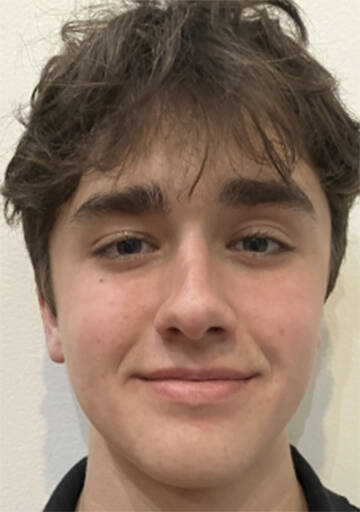On May 22 at 7 p.m. I would like to invite you to a special event at Bainbridge Cinemas. Welcome the Memorial Day weekend in a meaningful way and attend a free screening of “To What Remains,” a documentary about the humanitarian efforts of Project Recover and its attempt to scour the world to recover the remains of those Missing In Action and return them to their families.
The film touches on countless moving stories about people impacted by Project Recover. After it, there will be a question-and-answer session with Project Recover representatives.
As a Project Recover student ambassador, my journey with this organization began with a card. Every January, family friend Tim Quast sends updates on his children and work as a Navy physician. Acts of service color all his notes, but this year’s card stood out. In spring of 2023, Quast accompanied a band of men and women to search Palau’s jungles for the remains of a World War II aviator.
They came up short, but vowed to return. Then on Sept. 11 last fall, Quast witnessed an aviator’s repatriation and explained, “Despite being lost over seven decades ago, the emotional impact on the dozens of attendees was incredible and moving…To be able to participate in the repatriation of remains, along with the camaraderie that goes with it, has been one of the most gratifying things I ever did.”
I was intrigued and wanted to be involved with Project Recover.
Founded in 1993, Project Recover began when Dr. Pat Scannon was diving in Palau and encountered a B-24 wing submerged in a mangrove swamp. Scannon said, “I forgot about the aluminum and iron of that wing and what replaced it was an overwhelming feeling that something terrible had happened at this site.” Ever since, Scannon has been on a quest to repatriate the over 81,000 Americans still MIA since World War II.
As a high school student, my immediate connection stems from being descended from Naval aviators and two uncles who fought in WWII— one was wounded in Normandy and another killed in Poland where a marked grave holds his remains in Warsaw. The closure that comes from having tangible evidence of a family member’s existence carries meaning and healing.
When exposed to this particular life of service, you find out the struggles families go through when relatives are MIA. Project Recovery teams search for the remains of MIAs, and if they find nothing, they return to their proverbial drawing boards, rethink data, rework technology, and retrace their steps in jungles and oceans with every intent of being successful.
Despite their other commitments, team members find time to pursue what may feel like the impossible but nevertheless worthwhile. Living in a world saturated by instant gratification and limited bandwidths, I find that level of perseverance and focus on healing refreshing.
I am also drawn to Project Recover through my own interests in diving with a purpose and interdisciplinary problem-solving. Project Recover teams are often underwater employing remarkable diving skills to locate any evidence that helps piece together MIA stories. Moreover, they utilize a gamut of experts including but not limited to forensic archeologists, robotics specialists, historians, mechanics and locals who safe keep recollections of crash sites – unlikely bedfellows who somehow synchronize and make that type of work possible.
Driven by a desire to learn and sense of integrity, team members—each with different viewpoints and areas of expertise—are able to conduct real-world application of their ideas, advance their fields, demonstrate the power of interdisciplinary work and serve a higher good. Their work is equally intellectually gratifying and inspiring.
Project Recover has the distinction of being the only non-government agency capable of MIA recovery that includes research, search, documentation and recovery of land- or marine-based crash sites. Working in full cooperation with more than 20 countries, it has located more than 65 aircraft, repatriated over 17 MIAs, has 700 cases in its own database, and continues to push forward.
In Project Recover’s CEO Derek Abbey words, “We will continue to search for the more than 81,000 service members that remain missing in action until that number is as close to zero as possible.”
Roann Brumwell is a junior at Bainbridge High School.



